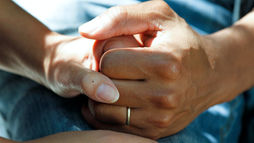

When Struggles Become More: Understanding Teen Mental Health and Wellness
Explore the vital aspects of teen health and wellness during adolescence. Understand emotional control and family dynamics.


High-Functioning Burnout - The Aesthetic Nobody Asked For
Uncover the signs of high functioning burnout and learn how it affects your body while appearing fine on the outside.


What Meaningful Support Looks Like for People with Intellectual and Developmental Disabilities (IDD)
Explore how to provide tailored support for individuals with IDD, ensuring their voices are heard and respected.


Why New Opportunities Are Important In Later Life
Explore the importance of opportunities in later life for your well-being and how new experiences can enhance your energy.


Healthy Skin and Wellness Start with Medical Spa Services
Discover advanced medical spa services that improve skin health with expert-led treatments for lasting beauty and confidence.


How Investing in Self-Care Can Improve Quality of Life
Discover how simple decisions can improve your quality of life. Embrace self-care to boost energy and confidence.


How Therapeutic Care Adapts Over Time
Learn why therapeutic care should not be a fixed approach. Adaptability is key for optimal patient support and assistance.


Can You Exercise After Massage Therapy? Key Insights
Understand the relationship between exercise after massage therapy and how to balance relaxation with your fitness routine.


Surprising Things That Can Affect Your Mental Health
Explore the things that affect mental health beyond trauma and stress. Discover how small factors can impact your well-being.






